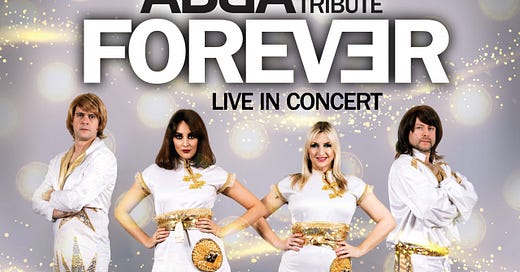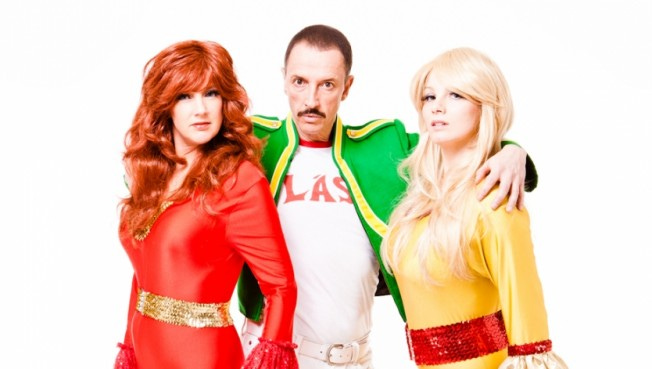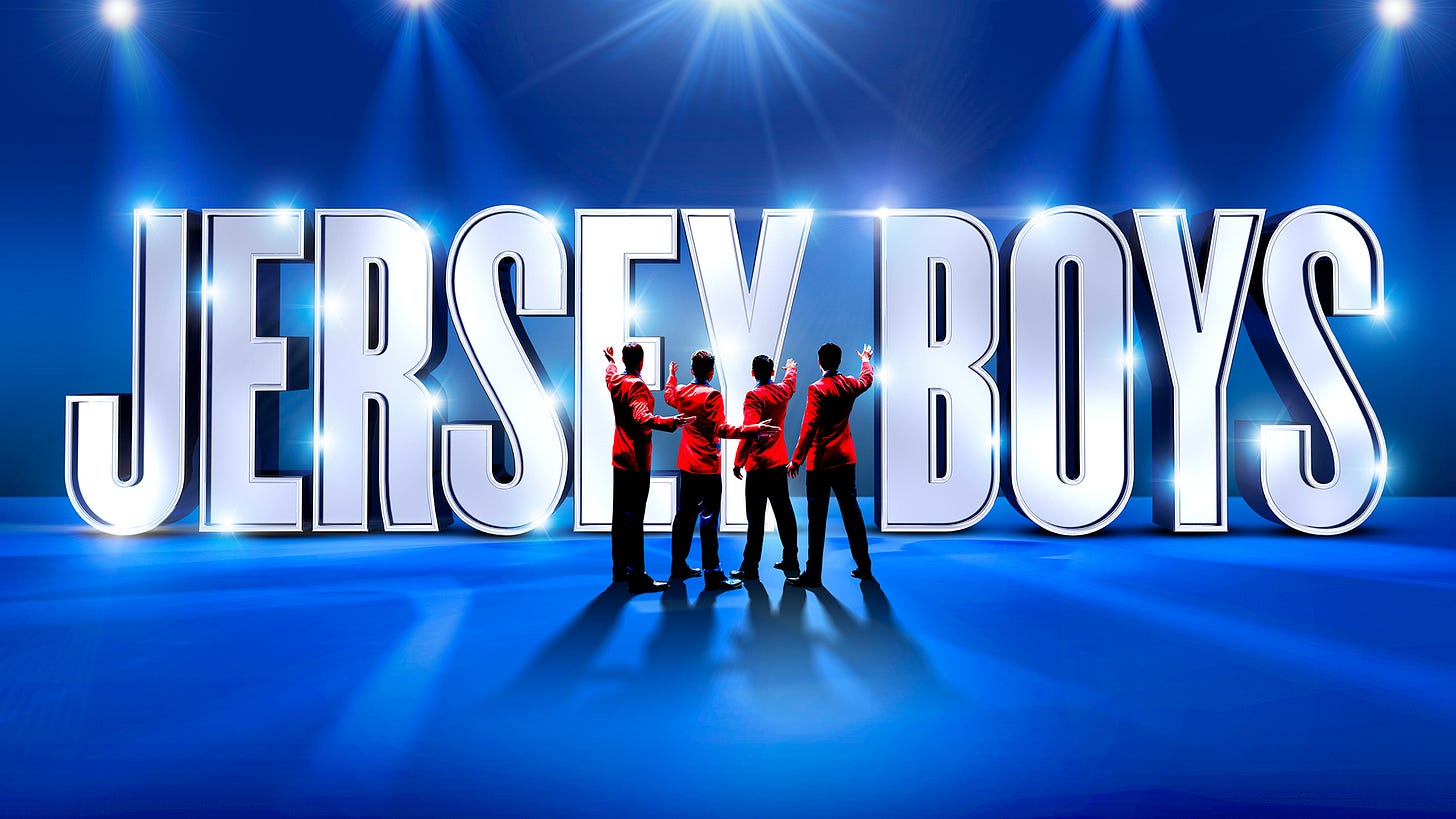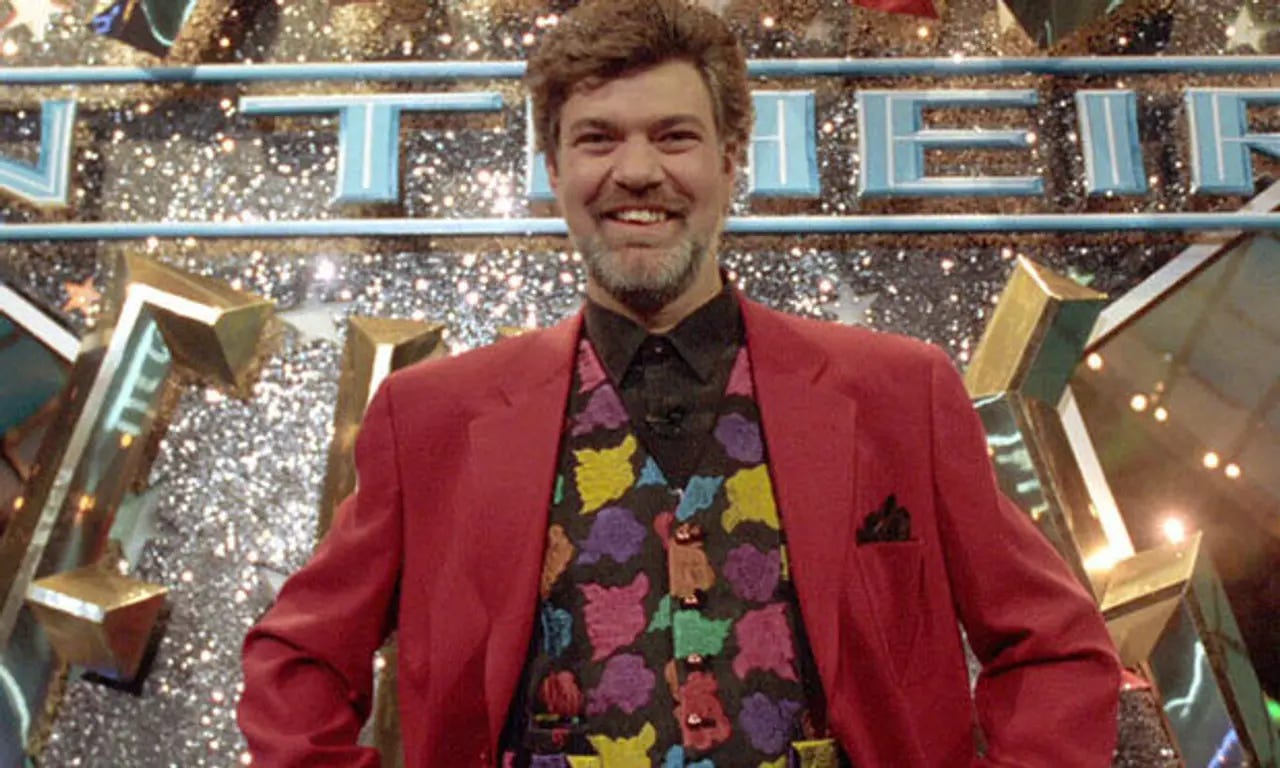Do We Need Another Tribute Show?
Do Tribute Shows Bring The Stars Closer or Are They a Sign of Creative Laziness?
A couple of years ago I did some research for a client on the state of the UK tributes market. This client is a producer, promoter and agent of mainly cabaret shows and wanted to get a better understanding of the tribute market before investing in it any further. I was hired to look at the state of tribute acts in the UK and to come back with commercial and creative ideas that would respond to my findings. At that time there were over 1000 Abba tributes working in the country - charging between £130 a night up to £5000 a night. That’s right 1000 ABBA TRIBUTES! And this was before Abba Voyager opened in London
As a business person you would look at this market the from outside and would probably think that if rates are down to £130 a night then this is not a good place to be.
I have heard from a leading promoter that the demand for Beatles and Stones tributes is now bottoming out although Elvis continues to keep rocking!
Another medium scale promoter who has over 1000 theatre shows a year tells me that their company has been moving out of the tribute market for several years.
However, the tributes keep coming and the market keeps evolving - the evergreens like The Jersey Boys, Queen and Abba continue to perform well while newer acts enter the fray and there has been a big bounce in Dua Lipa and Ed Sheeran tributes
You can get any size of Take That from a Barlow or Robbie solo right up to the classic 5 piece original line up - which might be seen as demonstrating that the tributes market which is flexible and responds well to demand!
As well as individual artist tributes there are themed shows such as Lost In Music, Back Into Hell or 80s Mania which are great fun tributes to a genre, or era in popular music. And another great example of market flexibility is the number of singers offering several tribute shows.
But there are some troublesome signs - as well as the low rates there are stories of white women offering Tina Turner and Whitney shows, and agents supplying clients with groups of singers who only meet on the day of the gig. At the more surreal end of the market there is the Abba / Freddie Mercury mash up which is the tribute we never knew we needed!
So with this huge choice the question is Do We Need Another Tribute Show?
But how did we get here?
Let’s look at how tribute shows started. The modern tribute industry arguably has three starting points:
In 1988 Rod Stephen started the Abba parody band Bjorn Again in a Melbourne pub
In 1990 ITV in the UK started the TV show Stars In Their Eyes in which members of the public would impersonate showbiz stars.
The late 1990s rise of the JukeBox musical which was supercharged by the arrival of Mamma Mia (Abba looms large in the Tribute story) and then Jersey Boys a few years later.
Bjorn Again arguably started the Abba revival and got the tribute market simmering however, their trajectory was much more like a regular rock band. They played universities and festivals and released records which were not just souvenirs of their show. They also became essentially a global brand
In the UK it was really the popularity of Stars In Their Eyes that got the tribute market fired up.
Although the show started with apparently regular punters doing their impersonations of Elvis and Lulu - once variety agents recognised there was a shilling to be made from this “lookie-likie” stuff there was a veritable gold rush on as they all tried to get every singer possible a spot on the show and then book them out as “As Featured on TV’s Stars In Their Eyes”
But this market was still a novelty niche that was looked down on by other performers who sneered at those unable to get work on their own merits and who could only get bookings by dressing up as someone famous…there were a load of lip sync shows which is a whole other genre!
It was the West End and Broadway jukebox musical that gave the tribute market its legitimacy. Once Mamma Mia and Jersey Boys became world wide sensations the concept, and imagery entered the public mind and more importantly the music was associated with a theatrical setting rather than a function room or party. With shows featuring the music of everyone from The Kinks and Madness to Cher, Carole King, The Temptations, Tina Turner and Jim Steinman the floodgates were open - as a point of interest there are TWO separate Bob Marley and TWO separate Take That musicals. And there was actually a Susan Boyle musical called I Dreamed A Dream!
So now there was a situation in which an act that was traditionally a variety or party act now became a theatre act and a theatre act that tours
Because regular theatre goers would see that The Jersey Boys musical was smashing it in London and then they could get a taste of it at their local theatre when the touring Jersey Boys tribute came to town. At the same time the fans of the music or people that wanted a great fun night out would now come to theatres to enjoy it.
This meant that many acts and producers had to raise their game because production standards for a theatre show are much higher than for a function or club gig.
This led to a some really well created high quality shows but as in all great show biz stories it led to a huge tide of unoriginality
As regularly happens in our industry some people thought “Oh look there’s money to be made off this thing so we need to do the same”. And this is why we now find ourselves in the position of having 1000 Abba tributes, with rates being pushed down for everyone which leads to lower quality and then lower rates in a never ending death spiral!
But the fact remains that tributes are still very popular and as I pointed out at the beginning there is now diversification into performers that might not have been seen as so mainstream such as Bowie, Kate Bush and even Lez Zeppelin who are an all female tribute to the world’s greatest heavy rock group.
So what’s the problem? The public like them because they are getting something that they are familiar with, its getting bums on seats and, really importantly, its keeping people working!
The problem and the challenge for tributes both stem from the sector’s success. Basically everyone is doing it, every theatre, venue and cruise ship is booking tributes AND pretty much every singer, group, genre and era has a tribute - except hip hop (yet!) But I’d love to see an NWA tribute!
What happens when something becomes ubiquitous is that the backlash against it becomes very strong. Think about the Disco Sucks movement in the late 70s and early 80s that pretty much brought the Bee Gees success to a halt for a few years.
When choice is restricted consumers start to crave and value something different - think about how much people will pay for unique items and experiences that not everyone can have or even knows about
This is the basic law of supply and demand - when demand is high prices go up and when supply is high prices go down. So if there is a huge supply of tribute acts it follows that prices are going to start slipping - if they have not already!
Right now we have a huge supply of tribute acts so the risk is that we are due a re-adjustment….
So what can we do as in industry to avoid a calamitous fall
First of all I don’t think the bottom will fall out of this market right away and when it does it won’t be overnight - but it is likely to happen over a couple of years. With theatre producers and promoters pulling back it looks like the tribute market will become more pub, club and function based.
This means that creatives, producers, performers and promoters - we all need to start preparing for change. And that change must be managed.
We need to start looking at what entertainment and cultural trends are coming down the track so that we ensure that the tributes that we offer remain on trend and commercial and they are what the public wants.
Then we need to start gradually feeding in the product that we are going to create to replace tributes. By preparing and working strategically we will protect our businesses and our industry.
The entertainment sector is like many other sectors in that we resist change because we are making money today. However, it is only by planning 2, 3 and 5 years into the future that we are ready for change and more importantly, ready to profit creatively and commercially from that change
Tributes are not killing the entertainment industry but the entertainment industry might kill tributes off if we don’t get seriously creative about getting ready for what’s next….







